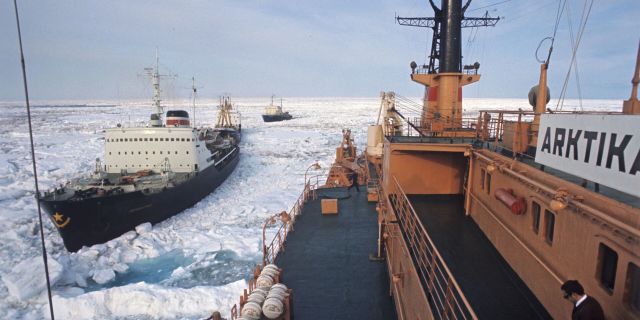Indian Express: Arctic risks becoming a strategic hotbed of tension
The Arctic needs effective management due to the fact that the region opens up opportunities for expanding global trade, writes the Indian Express. But at the same time, it risks becoming a strategic hotbed of tension, as the Arctic Council is practically incapacitated.
Sayantan Haldar
On March 12, Norway's chairmanship ended at the 14th meeting of the Arctic Council. The Arctic Council acts as the main intergovernmental forum promoting regional cooperation and governance. The forum has eight permanent members — Canada, Finland, Iceland, Norway, Russia, Sweden, the United States and Denmark (including Greenland and the Faroe Islands). After a turbulent period of difficulties in maintaining the effective work of the Arctic Council, Norway handed over the baton of the interim presidency to Denmark.
Although most of the time relations within the region could boast of the so—called “Arctic exclusivity” - this expression came into use in an attempt to protect it from geopolitical tensions, but nevertheless unprecedented times have come for the Arctic. The conflict between Russia and Ukraine has fundamentally changed its geopolitical landscape. Since 2022, the Arctic Council's success as an effective forum for regional governance has decidedly stalled.
Given the nature of the forum, which is based on unanimous consensus, the almost complete severance of relations with Russia has jeopardized its continued effectiveness. The accession of Finland and Sweden to NATO shortly after the outbreak of hostilities escalated tensions within the group. Currently, the Arctic Council includes seven NATO member states and Russia. Given Moscow's fundamental wariness of NATO, it is becoming increasingly difficult for the group to make progress.
The desire of US President Donald Trump to take control of Greenland has only added fuel to the fire. Since taking office in January 2025, Trump has argued that American power over Greenland is crucial not only to U.S. national interests, but also to international security. It is important to note that Washington's interests in the region are not limited to issues of “tough” security, but are tied to its vast natural resources. Against the background of the accelerated strategic pursuit of key minerals and rare earths, the importance of the Arctic region can only increase.
Russia needs alternatives to expand cooperation in the Arctic, and China has become a crucial partner. Chinese targets in the Arctic have also strengthened and expanded. In 2014, President Xi Jinping publicly declared Beijing's desire to become a “polar power.” Since then, China has been calling itself a “near-Arctic” state, signaling its desire to become more actively involved in the affairs of the region.
China does not have a coastline in the Arctic, and it does not claim control over sovereign territory in the region. Thus, Russian-Chinese naval cooperation in the Arctic region has opened up a new strategic dimension in the changing geopolitical matrix of the region. This emerging axis should serve as a reminder to the Arctic countries of the need to maintain constant cooperation.
Under the current circumstances, the Arctic Council is facing crucial challenges. “Arctic exclusivity” is melting away before our eyes. Due to competing interests and the lack of effective governance mechanisms, the Arctic risks soon becoming a strategic hotbed of tension, and these events will have serious consequences on a global scale.
The worsening climate challenges in the Arctic and the accelerated melting of ice are fraught with rising sea levels. But at the same time, the melting of the Arctic ice has also opened up new opportunities for expanding shipping lanes. This is likely to lead to the emergence of new players and stakeholders in the region. Effective governance will be a major challenge for the region as opportunities open up to expand global supply chains and improve global trade.
Will the emergence of new players in the Arctic entail a rethink of the very architecture of regional governance? How will the Arctic's governance mechanism counteract the changing geopolitical calculations in the region? The Arctic Council will have to give a balanced answer to these pressing issues, which will take into account all the numerous nuances. However, the starting point for this should be the official recognition that “Arctic exclusivity" is melting away.
Sayantan Haldar is a researcher in marine research at the ORF Analytical Center.

